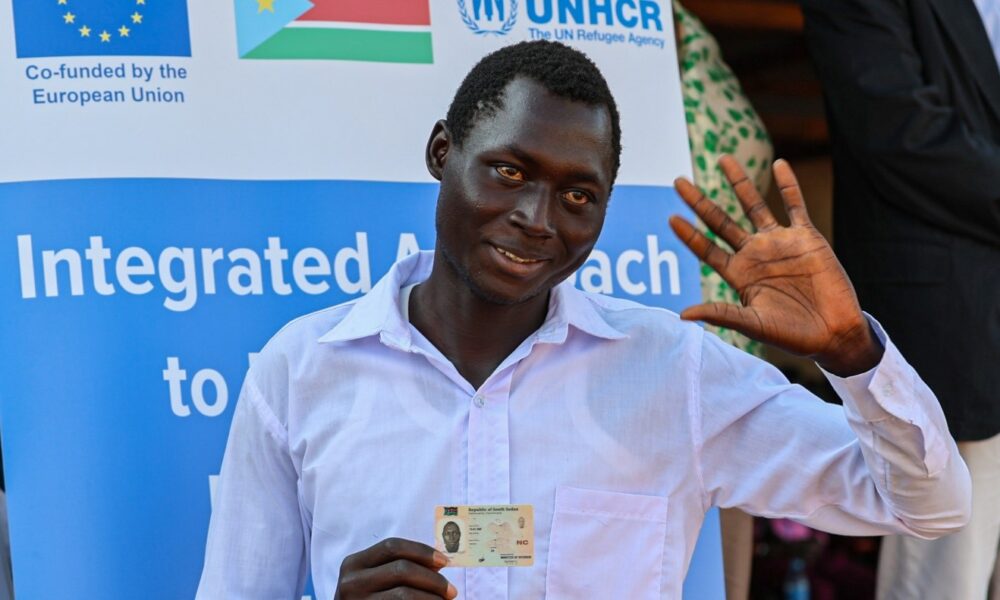By Philip Buda Ladu
A joint initiative by the United Nations Refugee Agency (UNHCR) and the European Union (EU) has provided over 17,400 South Sudanese with essential National Identity Cards most of whom are returnees.
This significant milestone was celebrated on Wednesday in Yei, where hundreds of South Sudanese received their IDs during a ceremony attended by UNHCR Assistant High Commissioner Raouf Mazou and EU Ambassador Timo Olkkonen.
In a statement to the media, UNHCR noted that the project, which began earlier this year, has primarily targeted South Sudanese returnees from neighboring countries and individuals at risk of statelessness in accessing essential services and rights.
The distribution of ID cards has been particularly focused on areas with high numbers of returning refugees, including Central Equatoria state’s Morobo, Lainya, Yei, and Kajo-Keji counties respectively.
The issuance of these cards is considered a crucial step for returnees as it provides them with legal recognition and facilitates access to essential services such as healthcare, education, and employment opportunities.
EU Ambassador Timo Olkkonen emphasized the importance of nationality documents as fundamental human rights.
“A nationality document ensures recognition by the state and facilitates access to essential services and opportunities,” said Ambassador Olkkonen. “It plays a crucial role in building a united nation.”
He commended the efforts of UNHCR and the South Sudanese government and called for continued efforts to ensure citizenship rights for all eligible individuals.
UNHCR Assistant High Commissioner Raouf Mazou emphasized the significance of South Sudan’s recent accession to the two Conventions on Statelessness.
“Yesterday’s ceremony is particularly timely and comes within a few weeks of South Sudan formally acceding to the two Conventions of Statelessness, a significant step for a country that faces unique challenges to integrate large numbers of returning citizens from neighbouring countries,” Mr Mazou said.
He acknowledged the challenges faced by hundreds of thousands of returnees from Sudan, many of whom may be at risk of statelessness.
“Many had never lived in South Sudan, and for them, the risk of statelessness can be high and further action is needed,” Mazou echoed.
The EU-funded Integrated Approach to Enhancing Protection, Resilience, and Solutions project which runs through 2025 is being implemented in various regions, including Greater Yei, Torit, and Wau, to support civil documentation, gender-based violence prevention, livelihoods, and education initiatives.
Simon Majur, Director General of the Directorate of Civil Registry, Nationality, Passport, and Immigration (DCRNPI), highlighted the government’s commitment to expanding access to civil documentation for all citizens.
He underscored the role of ID cards in empowering returnees and displaced communities.
“Having a National Identity Card empowers returnees and displaced communities to access essential services” Majur said.
While the voluntary return of refugees from Uganda and Kenya has been ongoing, the situation for those displaced from Sudan since April 2023 is particularly dire. Many of these individuals have never lived in South Sudan and face a heightened risk of statelessness.
UNHCR and the EU have expressed their dedication to addressing the challenges faced by South Sudan’s displaced populations and promoting sustainable solutions.




